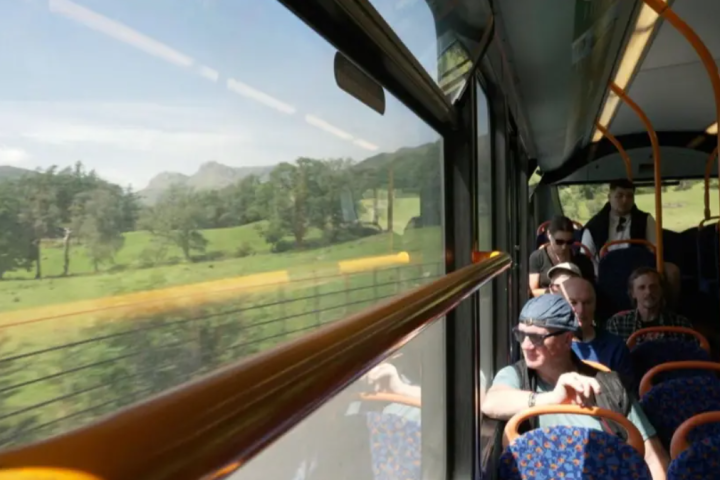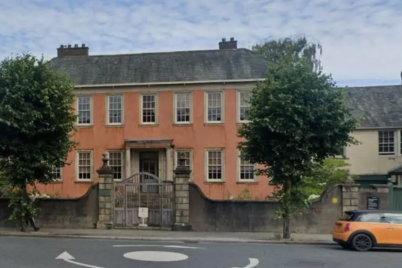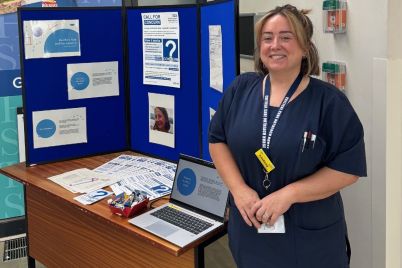Cumbria is set to lead the way in exploring how bus franchising could transform rural public transport, following a government-backed pilot programme designed to improve connectivity, enhance passenger satisfaction, and drive local economic growth.
The Department for Transport has provided approximately £500,000 to Cumberland Council and Westmorland and Furness Council to oversee the study. Minister for Roads and Buses Simon Lightwood said the government wanted the region to “lead the way in how franchising could be used in rural communities”.
Bus services in rural areas have been in “significant decline,” according to a recent Transport Select Committee report. Labour MP for Whitehaven and Workington Josh MacAlister highlighted the impact on local communities, saying: “For too long, people in our towns and villages have faced unreliable and infrequent bus services.” He added that by giving councils greater control over routes, fares, and timetables, essential services could be better protected, isolated communities connected, and local economies supported.
Franchising in this context would mean that Cumbrian councils could take direct responsibility for local bus routes, setting timetables and fares rather than leaving them entirely to private operators. The pilot will examine whether this approach, which has shown positive results in metropolitan areas, can be effectively applied to rural regions.
Manchester, for example, recently brought its bus network back under public control for the first time in nearly 40 years. The Bee Network, led by Mayor Andy Burnham, has seen a 10% increase in punctuality for buses and is being integrated with trams, with plans to include commuter rail lines by 2028. Vernon Everitt, Greater Manchester’s Transport Commissioner, said the system is “far, far more reliable,” while noting that initial phases faced challenges such as driver training and service delays.
Liverpool also reversed bus deregulation, with councillors voting in favour of franchising in 2023, marking another example of metropolitan areas returning services to public oversight. The West Yorkshire Combined Authority (WYCA) has followed suit, launching the Weaver Network, a franchised system that will operate from 2027. Operators can bid for contracts to run services under a single recognisable brand, while WYCA sets fares, routes, and timetables. Councillor Susan Hinchcliffe, chair of WYCA’s transport committee, said: “This is our opportunity to challenge operators to show us what they can offer as part of a new system where the passenger comes first.”
The experience of Greater Manchester and West Yorkshire demonstrates several potential benefits of franchising. Passengers enjoy more predictable and coordinated services, single-ticket systems, and integrated networks with other modes of transport such as trams and commuter rail. Mayor Burnham has urged residents to shift away from car usage to make the new system viable, highlighting the interconnected nature of modern urban transport planning.
Simon Lightwood said the government believes similar improvements could be made in rural Cumbria, noting that franchising has “actually been a really good model” in metropolitan areas and could provide the reliability needed in less densely populated communities. The pilot aims to ensure that passengers can “trust their bus will turn up on time and get to where they need to get to.”
Franchising also offers councils a tool to protect vital routes that might otherwise be cut due to low profitability. By controlling timetables and fares, councils can ensure that services continue to serve residents in villages and smaller towns, supporting access to jobs, education, healthcare, and leisure opportunities. MacAlister emphasised this, saying that greater local control would help “connect isolated communities and make sure that bus services work for local people and local economies.”
If the Cumbria pilot proves successful, it could set a precedent for other rural areas across England, demonstrating that bus franchising is not solely suitable for metropolitan hubs. The pilot will explore a variety of models and operational strategies to improve service quality, while monitoring passenger uptake, satisfaction, and overall economic impact.
Transport observers say that the pilot is a significant step forward for rural communities, where declining bus services have long been a source of frustration. In contrast to cities, rural areas face unique challenges such as long distances between stops, low passenger numbers, and dispersed populations, all of which have contributed to the decline of traditional bus routes.
With previous examples from Manchester, Liverpool, and West Yorkshire, local authorities in Cumbria have access to proven models, including dynamic procurement processes, franchised branding, and service integration, which can be adapted to meet the needs of rural passengers. The pilot will provide insights into whether these approaches can improve accessibility, reliability, and the overall appeal of bus travel outside urban centres.
As the pilot begins, councils, operators, and the government will closely monitor outcomes to determine the feasibility of scaling franchised services nationwide. Should the project succeed, rural residents across the UK could see a more reliable, coordinated, and efficient bus network, strengthening connectivity and economic resilience in communities that have long been underserved by public transport.
















